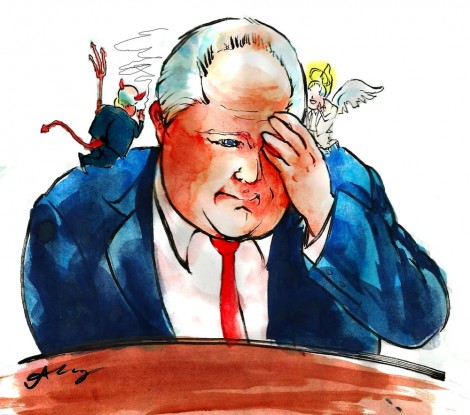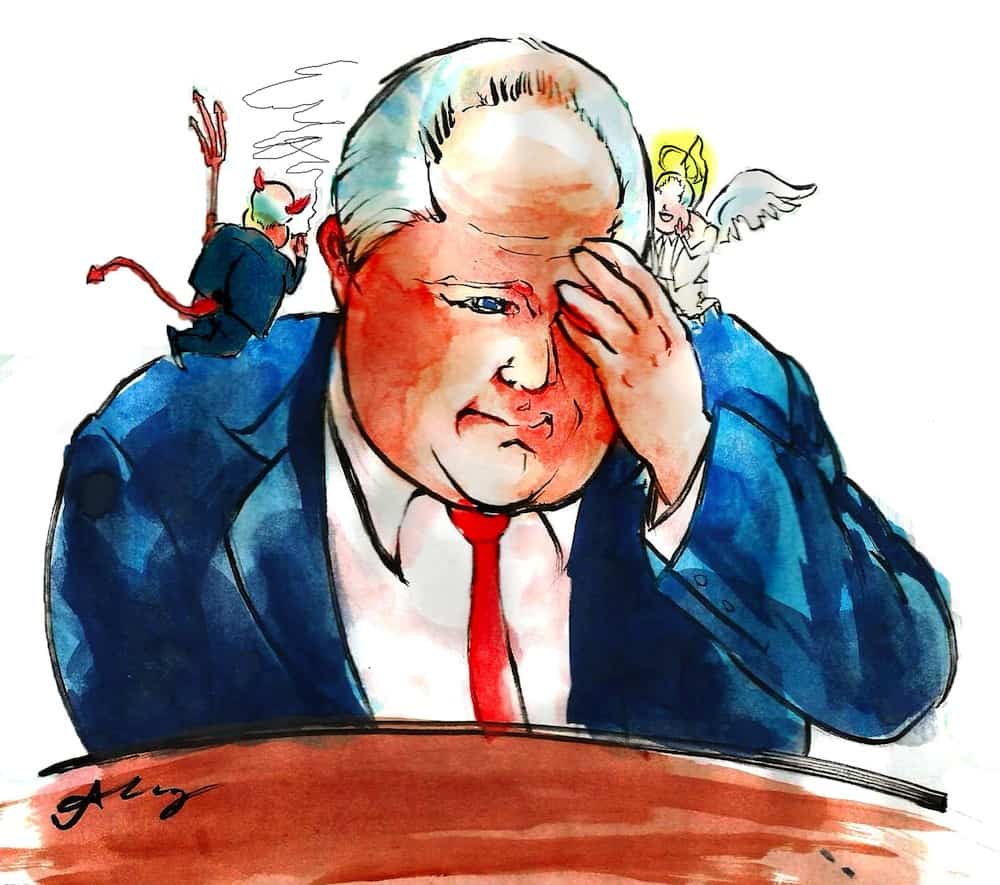Elected office requires respect for the position and the powers that it entails. It requires those in public positions to engage in intelligent debate. It requires a respect for the law and those who serve it. It requires civility towards others and respect for other legislators.
Admittedly, the oath of office that the mayor swore when he assumed office does not reference these requirements, but I think they are widely assumed to be critical to the success of a democratic system. A strong argument can be made that an individual who was appointed but behaves respectfully, engages in intelligent debate, respects law, and acts with civility, is more of a democrat than someone who was elected but doesn’t display these characteristics.

ANN SHENG/ THE VARSITY
Rob Ford performed well on the being-election criteria, but in the last six months he has failed miserably at living up to the obligations of a leader in a democratic system; he shows no sign of recognizing his shortcomings.
“I love saving taxpayers money,” said Ford, explaining why he won’t step down. It shows how out of his depth he is as mayor. It has nothing to do with personal behaviour; he doesn’t understand that the concerns of big city mayors extend beyond just saving money. It’s probably what made him a good council member and a horrible mayor.
The media has portrayed the mayor as the laughing stock of Toronto and of the world. With a history of violating the code of conduct, allegations and later confessions of illegal drug use, the use of vulgar and unthoughtful comments, and the accusations of association with gang members all show Ford’s poor character. But does that give legitimacy for the Council to strip Ford of his powers? No.
The Council has legitimate grounds if Ford is convicted as a criminal. However, there has been no official court ruling that Ford is guilty of the recent allegations. The only reason that Ford had his mayoral power stripped is because he sets new, inconceivable, lows daily, and that is troubling to Torontonians and Canadians.
In other words, Torontonians have voiced their frustration and given their representatives the mandate to act. The result is the special meetings of the past three days, where Ford was stripped of some powers. For instance, Ford has been stripped of his mayoral budget, has lost most of his staff, has lost the capacity to appoint members of the city’s executive committee, and cannot fire the deputy mayor.
The problem is that he is still mayor in title. That means he is still a representative of Toronto, and removing his powers does not address the key issue of his lack of judgment and poor character. Thus, he can continue to be the laughing stock of Toronto and Canada. Stripping him of his powers is ineffective in this regard.
Furthermore, the stripping of his powers is unjust. Mr. Ford was elected mayor by the citizens of Toronto. There is no evidence to suggest that councillors acted on the will of the majority of constituents who wished him gone. Everything was happening too fast to calculate. The decision of councillors on whether to remove him was likely a political game. Associating with Ford could be incriminating. Remove Ford’s powers, and he becomes harmless to the politicians regardless of what nonsense he does.
Let Rob Ford be a reminder of the need for serious consideration when casting ballots, and of the importance of expecting more than simple promises when selecting candidates. Ford has set a new low for Toronto and only a fresh election can correct that wrong.
Frank Weng is a fourth-year student studying political science and history.


